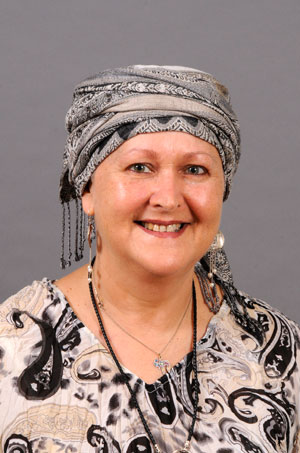Faculty Profile
Nitsa Kann
Associate Professor of Judaic Studies (2005)Contact Information
East College
717-254-8977
Bio
Her teaching interests include Hebrew language, Hebrew Literature, Kabbalah, and Middle Eastern Cinema. She is the author of two Hebrew books of poems, 'Black Soul Singer' (1989), and 'A Woman With Child' (1992), and the author of two Hebrew novels, 'Gazelle of Love' (1995), and 'Herotica' (1998).
Education
- B.A., Hebrew University, 1982
- M.A., University of California at Berkeley, 1984
- Ph.D., 2005
2025-2026 Academic Year
Fall 2025
HEBR 101 Elementary Modern Hebrew
Introduction to the modern Hebrew language. Alphabet, phonics and grammatical structures. Emphasizes development of reading comprehension, composition and conversational skills.
HEBR 201 Intermediate Modern Hebrew
Formal study of Hebrew language with emphasis on oral practice and writing skills.
Prerequisite: 102 or the equivalent. This course fulfills the language graduation requirement.
JDST 224 Kabbalah: Healing the Soul
Cross-listed with RELG 224-01.
RELG 224 Kabbalah: Healing the Soul
Cross-listed with JDST 224-01.
